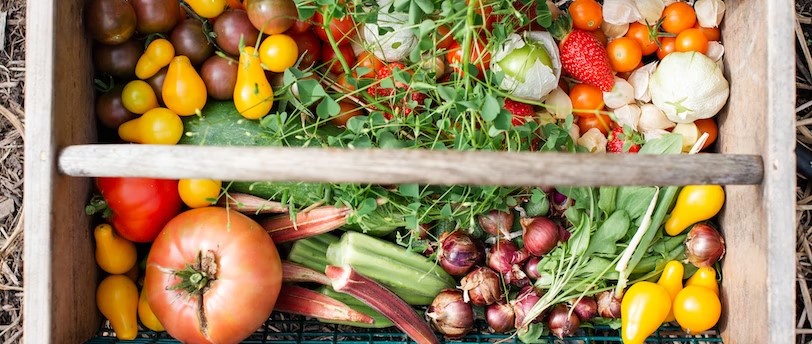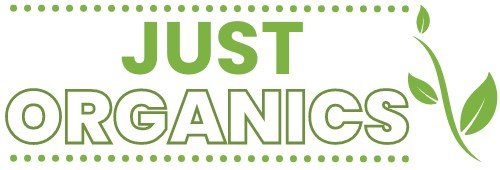You may be concerned about the amount of pesticides in your produce. If so, it’s important to understand which fruits and vegetables are more likely to have higher pesticide levels. That’s where the Environmental Working Group’s annual lists, known as the Dirty Dozen and Clean Fifteen, come in. These lists provide valuable and eye-opening information on which produce items are worth buying organic and which ones are safer to consume conventionally grown.
The Dirty Dozen consists of twelve fruits and vegetables that typically have the highest pesticide residues. These include popular favourites such as strawberries, spinach, kale, and apples. On the other hand, the Clean Fifteen identifies fifteen produce items with low pesticide levels, making them a better option if you’re unable to buy everything organic. Examples of these low-pesticide options include avocados, sweet corn, pineapples, and onions. By understanding these lists, you can make informed choices when it comes to shopping for organic produce and reduce your exposure to harmful chemicals.
The Dirty Dozen of 2023: Strawberries, Spinach, Kale, Peaches, Pears, Nectars, Apples, Grapes, Bell & Hot Peppers, Cherries, Blueberries, Green Beans (https://www.ewg.org/foodnews/dirty-dozen.php)
The Clean Fifteen of 2023: Avocado, Sweet Corns, Pineapple, Onions, Papaya, Sweet Peas (Frozen), Asparagus, Honey Dew Melon, Kiwi, Cabbage, Mushrooms, Mangoes, Sweet Potato, Watermelon, Carrots (https://www.ewg.org/foodnews/clean-fifteen.php)
Table of Contents

Understanding Pesticide Levels in Organic Products
You’ll be surprised by the pesticide levels lurking in your produce and how understanding them can help you to make smarter choices for your and your family’s health. Pesticides are chemicals used to kill or control pests on crops, but they can also pose considerable health risks when you consume them in high amounts. Studies have linked pesticide exposure to various health issues, including cancer, reproductive problems, and neurological disorders. If you’re aware of the pesticide levels in your produce, you can take steps to reduce your exposure and protect yourself from these potential risks.
One of the best ways to minimize pesticide exposure is by eating organic. Organic producers prohibit the use of synthetic pesticides. Instead, they rely on tried and true methods like crop rotation and biological pest control. This benefits us as consumers by reducing our intake of harmful chemicals and also has positive impacts on the environment. Organic farming promotes soil health and biodiversity. At the same time, they can minimise water pollution and carbon emissions.
How to Use the EWG’s Annual Lists to Help You
Make sure to check out the Environmental Working Group’s annual lists for an interesting guide on which fruits and vegetables are best for your health and the environment. It might even be something that you’d like to print off and consult when you go shopping next. If you’re wanting to make a start on getting into organics, you might decide to only buy those from the Clean Fifteen list. Then, with a little basic research, you’re sure to find an organic option close by where you can complete your shop with what you need from the Dirty Dozen list.
By keeping the Environmental Working Group’s annual lists as a guide, you can make more informed decisions about food safety. Having said that, it is important to note that even though organic farming practices minimise pesticide use, they don’t guarantee that they are 100% free from residue. By opting for organically-grown fruits and vegetables whenever possible, you can certainly reduce your exposure to potentially harmful chemicals. Buying organic food also supports your community and the sustainable agricultural practices that benefit both our health and the environment.
Making Informed Choices for Affordable Organic Foods
To ensure you’re selecting the healthiest options while grocery shopping, consider educating yourself on the numerous benefits and advantages of organic produce. Organic certification guarantees that the produce has been grown without the use of synthetic pesticides, fertilizers, or genetically modified organisms (GMOs). Switching to organics, you can reduce your exposure to harmful chemicals and support sustainable farming practices. Additionally, studies have shown that organic fruits and vegetables may have higher levels of certain nutrients compared to conventionally grown ones.
One of the main health benefits of consuming organics is a reduced risk of pesticide residue exposure. Pesticides are used in conventional farming to control pests and weeds, but they can leave behind residues on crops. These residues have been linked to various health issues such as hormone disruption, neurotoxicity, and even cancer. Choosing organic ensures that you’re minimizing your intake of these potentially harmful substances.
Furthermore, organic farming methods prioritize soil health and biodiversity. Organic farmers rely on natural methods like crop rotation, composting, and biological pest control to maintain healthy soil ecosystems. This leads to increased nutrient content in the produce as well as a more sustainable environment for future generations. By supporting organic agriculture, you are not only benefiting your own health but also contributing to a healthier planet.
Educating yourself about organic certification and understanding the health benefits associated with it can help guide your choices when shopping for produce. Going organic reduces exposure to pesticides and supports sustainable farming practices that prioritize soil health and biodiversity. So next time you’re at the grocery store, consider reaching for those certified organic fruits and vegetables – both for your own well-being and the well-being of our planet.
Frequently Asked Questions
Q: What is the difference between organic and non-organic food?
A: Organic food is produced using organic farming practices, which means that it is grown or raised without synthetic pesticides, fertilizers, antibiotics, or growth hormones. Non-organic food, on the other hand, may be produced using these substances.
Q: Why should I choose food that comes from organic farming?
A: It is grown using organic farming practices, which are better for the environment and promote sustainable agriculture. It is also free from synthetic pesticides and has been shown to have higher levels of certain nutrients. Purchasing organic items also supports the local community.
Q: What is the Dirty Dozen and Clean Fifteen?
A: The Dirty Dozen and Clean Fifteen are lists published annually by the Environmental Working Group (EWG). The Dirty Dozen lists the twelve fruits and vegetables that have tested positive for the highest levels of pesticide residues, while the Clean Fifteen lists the fifteen fruits and vegetables that have tested lowest for pesticide residues.
Q: How can I choose organic produce wisely?
A: To select organic produce judiciously, refer to the Dirty Dozen and Clean Fifteen lists. You may want to prioritize buying organic fruits and vegetables on the Dirty Dozen list, as they tend to have higher pesticide residues. For the fruits and veggies on the Clean Fifteen list, you have the option of buying conventionally grown produce to save money. However, consider local produce rather than supermarkets for your next shop.
Q: What does organic certification mean?
A: Organic certification is a process in which farms and food producers are inspected and audited to ensure that they meet organic farming standards set by regulatory bodies, such as the USDA. Farms and food producers that meet these standards can display the organic certification seal on their products.
Q: Are organic foods more expensive?
A: Organic foods can be more expensive than non-organic foods due to the costs associated with organic farming practices, such as labour-intensive methods and higher input costs. However, it is possible to find affordable organic foods by shopping seasonally, buying in bulk, or choosing store brands.
Q: Is organic meat antibiotic-free?
A: Organic meat is produced without the use of antibiotics. Organic farming standards prohibit the routine use of antibiotics in livestock farming. However, if an organic animal becomes sick and requires antibiotics for treatment, it must be removed from the organic program and cannot be sold as organic.
Q: What are some other benefits of organic agriculture?
A: Organic food production promotes sustainable agriculture, reduces pollution and soil erosion, and supports biodiversity. It also avoids the use of genetically modified organisms (GMOs) and synthetic preservatives.
Q: Is all organic food 100% organic?
A: While organic food is produced using organic farming practices, not all organic food is 100% organic. For example, a product labelled ‘made with organic ingredients’ must contain at least 70% organic ingredients.
Q: Where can I buy produce grown by organic farmers?
A: Organically-grown produce can be found in many places, including health food stores, farmers markets, and even some conventional grocery stores. You can also consider joining a community-supported agriculture (CSA) program or growing your own in your garden.
Conclusion
When it comes to choosing organic produce wisely, being aware of how produce is grown is very important. By referring to helpful lists like the Dirty Dozen and Clean Fifteen you can get valuable information on which fruits and vegetables have high or low pesticide residues. It might not completely change your shopping routine, but by being more aware, you can at least make an informed decision.
It’s important to note that consuming conventionally grown produce is still better than not eating enough fruits and veggies at all. However, if you have the means and opportunity to choose organic options from the Dirty Dozen list especially, it can help minimize your pesticide intake for a healthier lifestyle overall. Stay informed and make conscious choices for yourself and your family when it comes to buying organic produce.

